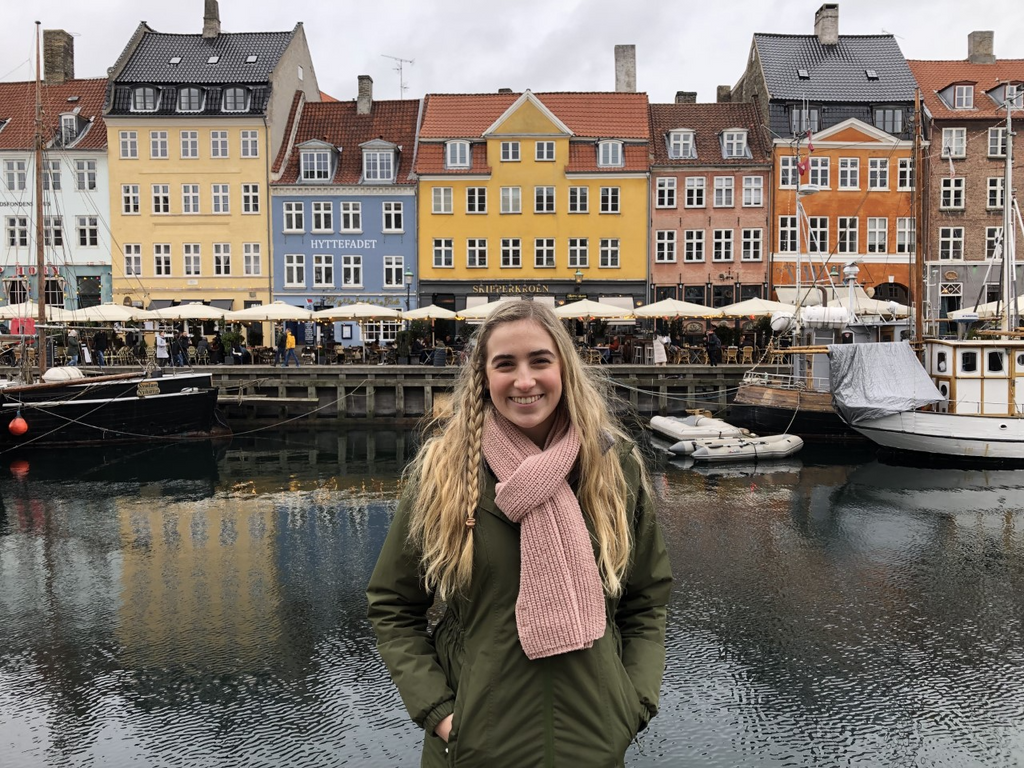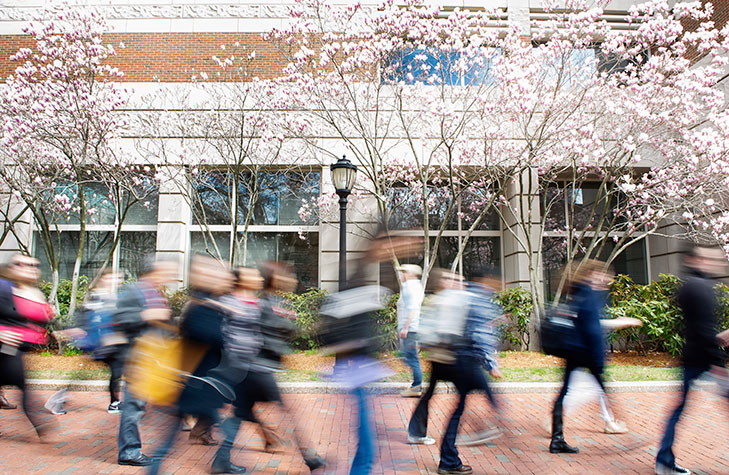By Morgan Donohue (CAS’22)
1. Being a short walk from just about anyone and anything
One of my best pieces of advice is that Google Maps lies about how long it takes to walk somewhere. On campus, your furthest walk will probably be no more than 20 minutes. This made getting to class, stopping for lunch, meeting up with friends, and studying so convenient, because your destination was never too far away. If something is a little far, the weather isn’t fantastic, or you’re looking to go off campus, the T runs right through campus and you can hop on with your CharlieCard. If you want to go even further away, there are several ZipCar locations around campus that make quick daytrips very convenient. I will definitely miss the proximity of all of the places and people I’ve grown to know and love over the past four years.
2. The Kilachand advising office
Being in Kilachand means that the Honors College offices are right on the first floor. This is where you can stop by for meetings with your Kilachand advisor and other members of the administration. Your Kilachand advisor is there to help you navigate your way through Kilachand and the Hub, but they are also there to support you as a person. I will absolutely miss going to the advising office just to chat, and having a dedicated advisor who was there to help me along the way.
3. Bay State Road
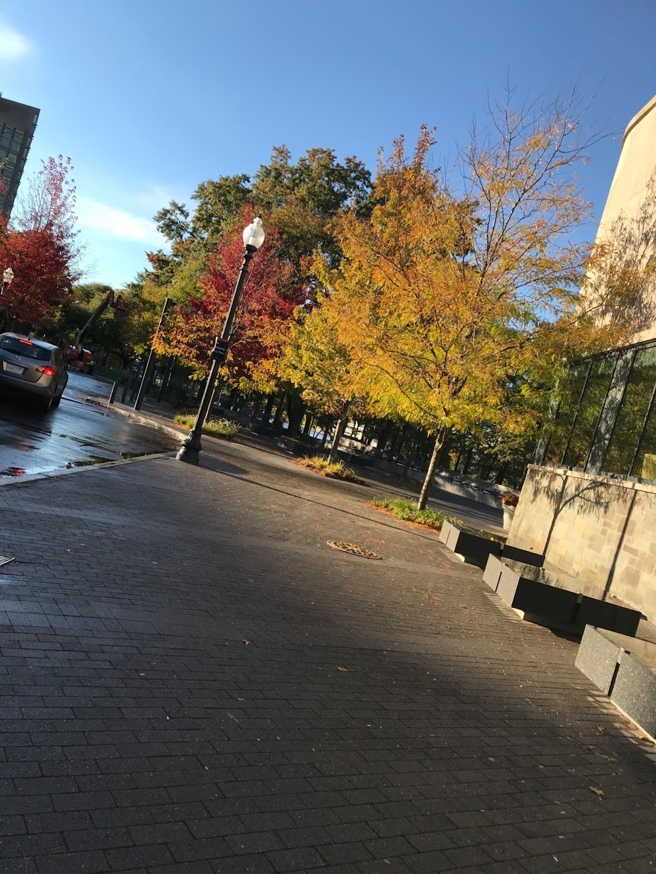
When I visited campus for my first open house, there was no parking close to Kilachand, so my family had to park and walk back, all the way down Bay State Road. And boy was it worth it. Bay State Road is, in my humble opinion, one of the most beautiful streets ever. It is gorgeous in the fall when the leaves change color. It is picture-perfect in the winter when it snows. It is beautiful in the spring when the trees start to blossom again. Even if you’ve had a busy day and you’re exhausted, it’s hard to walk down Bay State Road and not enjoy yourself. I am going to miss running down the street in the mornings and admiring the gorgeous buildings on my walks home from class.
4. The Dog Pound
I was never a huge sports watcher, and I am still not, but I will make an exception for BU Hockey. I absolutely loved everything about hockey nights, eating dinner a little early so you can get the good seats, learning the chants, hearing the BU Pep Band, and getting Raising Cane’s afterwards. With a Sports Pass, you can get tickets to any home game you want, and I highly recommend heading over to Agganis Arena for some hockey. I am going to miss putting on my hockey jersey and cheering in the stands, but I hope to come back and catch the 2022 Beanpot Champions at another game.
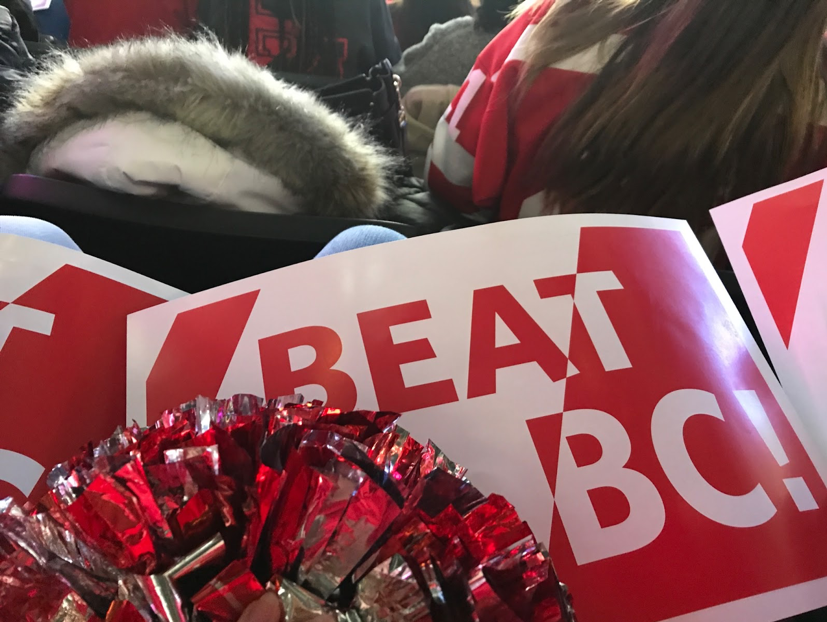
5. My on-campus housing
I lived in Kilachand Hall my freshman and sophomore years, and I absolutely loved my room. I loved having a bathroom in my room, being across from the Marciano Dining Hall, and living close to the Kenmore T station. This year I am living in South Campus in on-campus apartment-style housing, and I love it! I get to cook my own meals, so I am learning new recipes all the time. I live in a brownstone, so I have those iconic bowed-out windows that get plenty of sunlight. Living on campus kept me close to my classes and my friends, and I was able to make dorms and on-campus apartments into comfortable homes during the school year. I am going to miss all of that, but especially my current apartment and its view of Beacon Street.
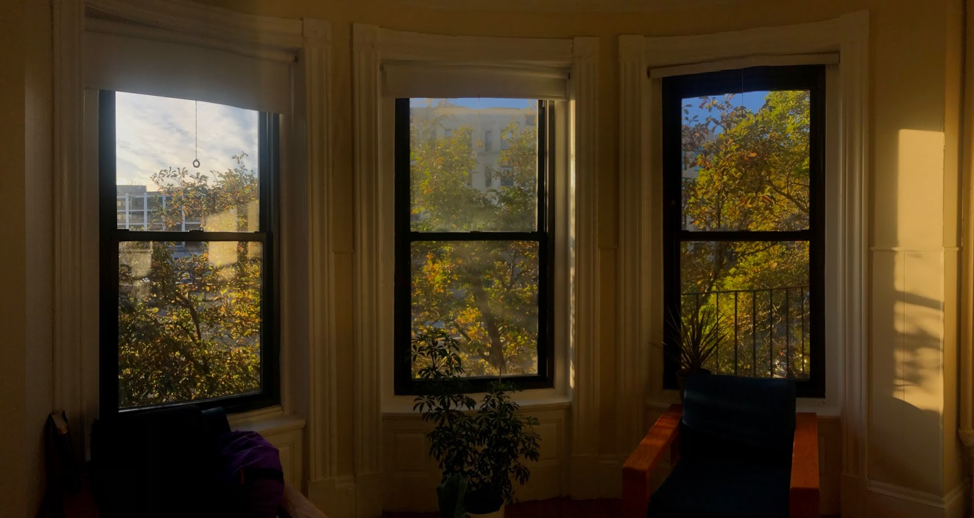
6. Student discounts
Your BUID comes with a lot, and I mean a LOT, of perks. With your @bu.edu email address, you can get access to discounts for digital subscriptions like The New York Times and Spotify+Hulu, software packages like Microsoft Office and MatLab, and many online clothes retailers offer discounts after you verify your student identity. You can also get free or discounted admission to museums like the MFA and the Institute of Contemporary Art if you show your BUID or order online with promo codes. I am going to miss the savings, but mostly I will miss the easy opportunities to go and experience something new without a huge price tag.
Images © Morgan Donohue 2022


